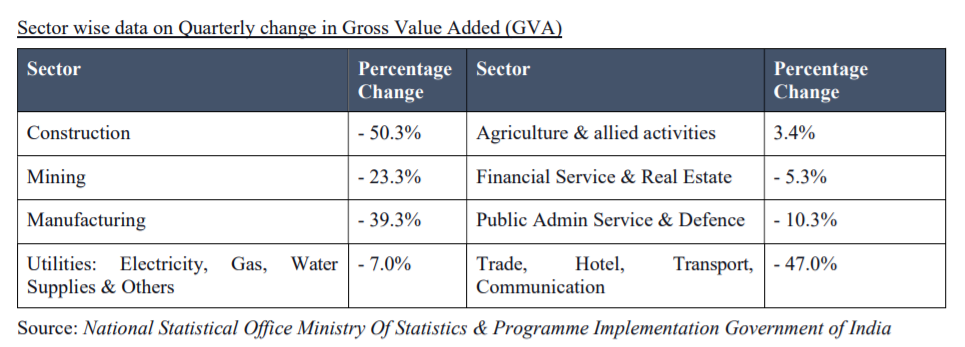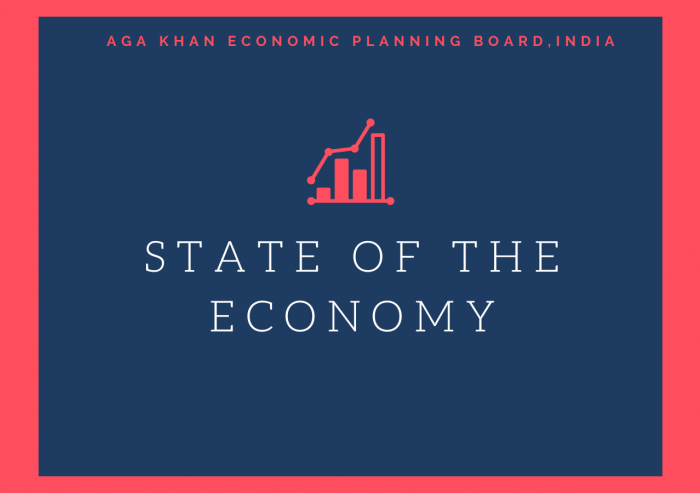Finance minister Nirmala Sitharaman unveiled relief and economic stimulus measures between 13th May and
17th May this year under the INR 20 Lakh Crore Atamnirbhar Bharat Abhiyaan package, which included monetary measures by the Reserve Bank of India (RBI). In May, the monetary policy committee (MPC) cut the repo rate to 4% to boost liquidity. Impacts of the economic stimulus measures to stimulate consumer demands are unclear, and uncertainty on credit availability to individuals and businesses still remains outstanding.
Gold, often used as a safe store of value during times of political and financial uncertainty, has risen more than 30% this year to cross $2000/ounce for the first time. Both gold and silver maintained their upward journey as investors reallocated funds into both of these metals to safeguard their portfolios amidst the economic uncertainty caused by the COVID-19 global pandemic.
Despite the lockdown, the Indian stock markets performed their best quarterly gains since the September quarter of 2009 during the April-June period. According to a Mint analysis, Indian benchmark indices Sensex and Nifty gained nearly 20% in April-June, as against a decline of 28% and 29% in the previous quarter.
The ripple effect of the nationwide lockdown impacted the Indian economy, as all business sectors got affected that resulted in low revenue generation. Unfortunately, the impact of the pandemic on startups and small businesses is way more brutal as they have scarcer cash reserves and a smaller margin for managing sudden slumps. From that damage assessment perspective, the travel and hospitality sector has suffered extensive losses, and it is likely to be the area that will take the longest to re-emerge due to the new normal.
Many businesses witnessed pent up demand during the June-August Unlock period, but with rising COVID cases and fear of future income, households have significantly cut down discretionary spending. We also witnessed a shift in preference in the lockdown with the rise of digital adoption across purchase, payments, media, learning and social.
Currently, for most companies’ post-lockdown period challenges include weak consumer demand, reduced purchasing power, lower capacity utilization, displaced labor and COVID fear. With Coronavirus cases rapidly rising across the country, most professionals continue to work from home that has led to many disruptions across sectors such as real estate. Schools and educational institutions have moved to digital channels to impart teaching, a boon for the Ed-tech startups & companies but a bane for booksellers and publishers, who have witnessed an unprecedented decline in business and disruption in the industry.
Some possible ways to deal with the current climate and promising sectors insights:
• As business activities are slow, some firms may see lower revenue resulting in poor cash flow.
Businesses should be prudent and model the worst-case scenario to assess the cash position. To tackle the slowdown, track expenses against the income, identify avoidable variable costs such as hiring and marketing that can conserve and generate cash. But also plan for the future by renegotiation fixed costs with various stakeholders including new payment terms on rent, discounts and credit periods from suppliers, and equipment lease payments.
• A month after the lockdown, 121 million Indians were out of work, according to the Centre for Monitoring Indian Economy (CMIE), an independent think tank. The pandemic forced the employees to work from home, companies to downsize with large-scale layoffs, hiring freezes, and even deferred start dates for some recent graduates. This period is an opportunity to up-skill and re-skill. There are several skillsets for which employers are still hiring. For example, in the IT sector skills such as coding, Python programming, and application development are in-demand. There is an abundance of options for skilling online through various websites including Coursera, edx, udemy, unacademy and many others. Many
top global universities have increased the courses they offer for distance learning online. Upskilling can help you not only land new jobs or promotion but also provide you to the opportunity to explore freelancing opportunities available
• Leverage the opportunities with Digital and Delivery. With dining still restricted in restaurants and QSR in most states in the country, leveraging the online food delivery apps such as Zomato and Swiggy are essential for the businesses to survive. Similarly, 12 million Kirana stores are part of growth plans for e- commerce giants Amazon, Wal-Mart backed Flipkart and Reliance Retail. Reliance e-commerce platform the Jio mart has started an initiative in partnership with WhatsApp to enable consumers to buy from nearby stores. Furthermore, Flipkart has already partnered with 50,000 Kirana stores for last-mile delivery activities. These initiatives are enabling the transformation of Kirana stores from pure brick- and-mortar entities to quasi-digital businesses and raising incomes.
• FMCG, health-focused food-based products, and essential commodity providers have seen growth even in these difficult times. Range of sanitizers, home cleaning, disinfectants, personal hygiene products have witnessed a spike in demand, and have become profitable avenues for manufacturers and retailers alike. Social distancing norms have forced consumer behavior to eat home-cooked food and ready to eat items. Additionally, health-oriented food and immunity-boosting products have become a strategic growth area for many companies such as Dabur, Patanjali, and other organic brands. This space will continue to provide growth opportunities.
• The healthcare sector is still facing hardships owing to the pandemic and all non-emergency treatment taking a backseat. However, teleconsultations have become the new normal with estimated at least five Crore Indians opted for online health consultation during the lockdown. The online consultation and subsequent innovation in telemedicine platforms, self-monitoring healthcare devices and data analytics could bring a wave of disruptions in the Healthtech industry in India.
If any member of the Jamat wants clarification on the above circular or wants to share his views, he can write to us on [email protected]
To read in Gujarati click here
(This SOE has been written by Mr. Zubair Malik. Mr. Zubair Malik has graduated from Warwick Business School, UK. He has previously worked in an Analytics firm and a boutique strategy consulting firm in New Delhi. Currently, managing a business that deals in home furnishing and furniture based in Central India)








